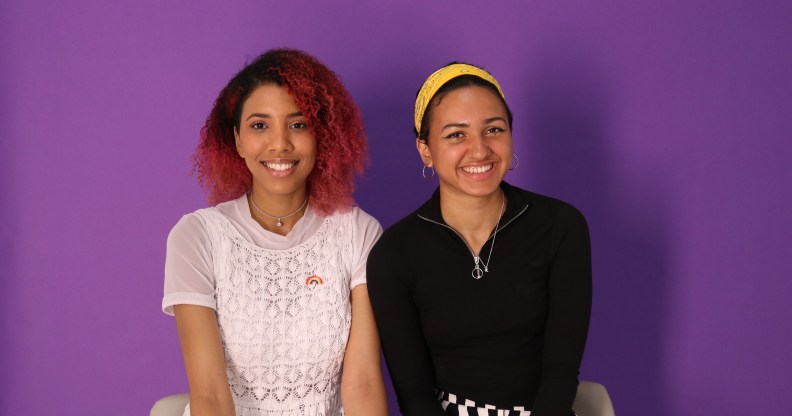What is it like being black in LGBT spaces?

What is it like being Black in LGBT+ spaces Iona LI Benedetti
According to a Stonewall report, more than half of BAME LGBT+ people say that they have faced race-based discrimination within the LGBT+ community.
The research reveals that from dating apps to gay bars, 61 percent of black LGBT+ people have experienced some form of racism from other LGBT+ people.
Iona is a student at Cambridge, and Li Benedetti is a non-binary artist and activist in London. The two shared their experiences of being black in LGBT+ spaces with PinkNews.
Both Iona and Benedetti have experienced racism in LGBT+ spaces such as clubs, bars and panels, and Iona has also experienced it within LGBT+ organisations at her university.
“Where are you really from?”@libenedetti and @thisisiona_ share what it’s like to be black in LGBT+ spaces. Read more: https://t.co/XcgOcKOv5D pic.twitter.com/TffFD7tcWR
— PinkNews (@PinkNews) July 11, 2019
The statistic that 61 percent of black LGBT+ people have experienced racism didn’t surprise either of them.
As Iona explained, her experiences have often been micro-aggressions. Phrases like: “Oh my god, where are you from? Where are you really from? Where are your parents from?” are very common in predominantly white queer spaces.
Iona thinks one of the biggest issues is queer people believing that they are “completely above any form of being able to be discriminatory towards anyone else, especially racism,” which makes it hard to call out racism in these spaces.
Benedetti is Brazilian, and is often met with comments about their physical appearance when people discover this.
“I’ve had this experience multiple times where people are like: ‘Oh my god, let me see your arse,’ and they just touch me.”
Being touched without consent is a regular occurrence for both Iona and Benedetti, as well as people asking them inappropriate questions about their bodies and their heritage.
Although Iona has experienced this a lot less since cutting her hair, being mixed race she feels like people fetishise her body, often calling her ‘exotic’ because she is sometimes read as racially ambiguous.
I definitely feel like I have to sometimes pick between my blackness and my queerness in a lot of spaces.
She believes people of colour are often overlooked in LGBT+ spaces because a lot of people “don’t make any assumptions that someone who is black or who is Muslim, or who is Asian might also be queer,” which leads to queer people of colour feeling excluded from the community.
Black queer spaces like Pxssy Palace, BBZ and the annual UK Black Pride are where Iona and Benedetti feel the most comfortable. For Iona, being in white queer spaces or straight black spaces means having to hide parts of her identity.
“I definitely feel like I have to sometimes pick between my blackness and my queerness in a lot of spaces,” she says. But being in black queer spaces means she can be “a mixture of things without having to worry.”
Benedetti agrees, adding that black queer spaces are essential because they are “where queer black people can just feel at peace.”

